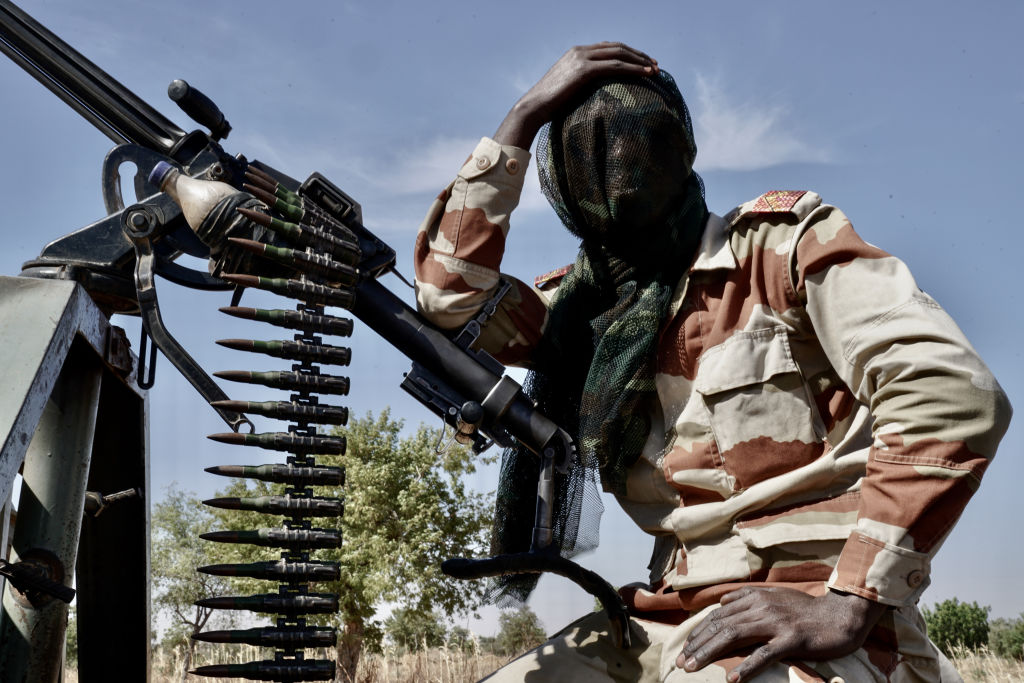ADF STAFF
When Niger overthrew its civilian government in July, it joined a growing tally of West African nations that had done so, further complicating regional economic and security cooperation at a time when it is needed most.
Before the recent coup, Niger’s multinational security cooperation was rich and varied: In 2014 and 2018, Niger hosted Exercise Flintlock, the largest counterterrorism training event on the continent. In 1998, Niger joined the Multinational Joint Task Force (MNJTF) to ensure security in the Lake Chad Basin. Seventeen years later, the MNJTF expanded to field a force of 10,000 troops from Benin, Cameroon, Chad, Niger and Nigeria to confront the Boko Haram threat that was besieging the region.
In 2017, Niger joined Sahel neighbors Burkina Faso, Chad, Mali and Mauritania as part of the G5 Sahel Joint Force, which opposed extremism originating from its west, namely Mali.
Niger’s coup has serious implications for regional security, according to Dr. Muhammad Dan Suleiman, a Ghanaian research associate at Curtin University in Perth, Australia. Among them are endangering cross-border development projects, weakening the Economic Community of West African States (ECOWAS) and damaging cooperation across the Sahel, he wrote in an article for The Conversation.
“None of these would be good outcomes,” Suleiman wrote. “They would worsen existing humanitarian crises, including food insecurity, environmental disasters, transnational crime, population displacements and widespread poverty.”
Among the most significant projects imperiled by Niger’s coup is the $13 billion gas pipeline project that would connect gas fields in Nigeria to Algeria and beyond. The 4,100-kilometer pipeline eventually would connect to Europe through Spain or Italy, according to the website bne IntelliNews.
At a June 2022 meeting in Abuja, Nigeria, energy ministers from Algeria, Niger and Nigeria agreed to accelerate work on the Trans-Saharan Gas Pipeline, which was conceived in 2002 with a memorandum of understanding between Algeria and Nigeria. Russian-imposed natural gas restrictions on Europe added a sense of urgency to the project.
“A lot of European countries are asking for alternative gas supply from us in Africa,” Timipre Sylva, Nigeria’s minister of state for petroleum resources at the time, told bne IntelliNews after the meeting. “And this is because, of course, today gas is now a weapon of war between Ukraine and Russia, and so, more than ever before, our gas is needed.”
In February 2023, Niger’s stretch of the Trans-Sahara Highway, a 9,400-kilometer route linking West and North Africa, was about a year away from completion, according to the African Development Bank Group. The country had completed 1,890 kilometers of the 1,950 kilometers in Niger, according to the Bank Group’s website.
The bank’s African Development Fund is contributing nearly $120 million of the more than $175 million cost of the project in Niger. The future of the road and trade moving along it are uncertain since Nigeria closed the border with Niger. Closure of the route threatens $1.3 billion in trade, according to a report in Nigeria’s BusinessDay.
The coup also strains cohesive relations among ECOWAS members, Suleiman argued. The regional economic community has demanded the release of ousted Nigerien President Mohamed Bazoum and even threatened military action to restore democracy. But not all member states agree on this approach.
“The immediate support offered to the Niger coup leaders by their counterparts in Burkina Faso and Mali points to serious fissures within the bloc,” Suleiman wrote.
Finally, the coup affects security for Niger and the region. In years leading up to the coup, Niger considered regional and international cooperation essential to its security. Its precarious position, which has it facing violent extremists originating in Mali to the west and northern Nigeria and the Lake Chad Basin to the southeast, could increase the prospects for extremist violence without longstanding alliances.
Niger is the third member of the G5 Sahel Joint Force to succumb to a coup since 2020. Internal disruptions and its isolation by Nigeria and the larger ECOWAS community are likely to prevent any contribution it could be making to the MNJTF.
Internal security already is showing evidence of wavering in the coup’s aftermath. The United Nations reported on August 29 that an additional 20,000 people have been displaced by violence since the overthrow. In the five days after the coup — from July 26 to 31 — the U.N.’s refugee arm noted a 50% increase in incidents such as kidnapping, gender-based violence and domestic violence.
Globally, Niger saw the largest rise in terrorism deaths in 2021 with an increase of 129% over the previous year, according to the Global Terrorism Index. However, deaths fell by 79% a year later, according to the index. Researchers Méryl Demuynck and Mathis Böhm, writing for the International Centre for Counter-Terrorism, said some have attributed those gains to increased counterterrorism operations.
A destabilized Niger “would certainly pose serious risks for the broader region, as this political turmoil might impact counter-terrorism efforts, benefit terrorist organisations, and eventually impact the broader Sahel’s security landscape,” Demuynck and Böhm wrote.

